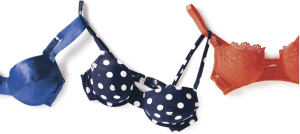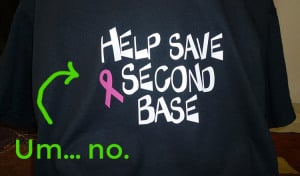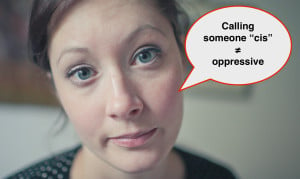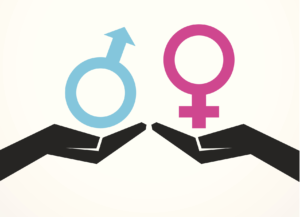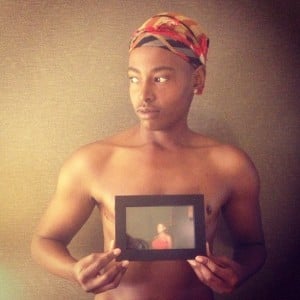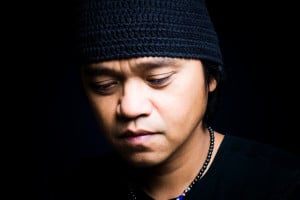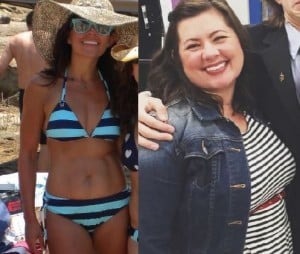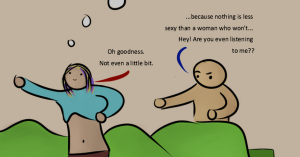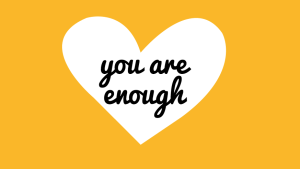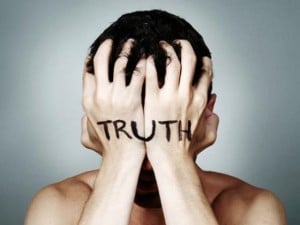
Source: The Emotion Machine
Telling the truth is hard.
Society is largely responsible for creating a false concept of “truth” to begin with and then coercing us into believing it.
We learn what’s “good” and what’s “bad,” what’s “right” and what’s “wrong,” and what’s “just” and what’s “unjust” from a very young age. This knowledge becomes engrained and makes up a large part of our perceptions of the world.
The problem is that these societal truths that run in our heads often run counter to the truths that we feel in our hearts.
There’s social pressure to see things in certain ways and to tell certain premeditated status-quo enabling truths. And we’re coerced into telling these truths, even if they often don’t look like truths at all, but rather lies masked by fear.
Think, for instance, about being a feminist.
Feminism is a way of making sense of the world around us.
By calling ourselves such, we are (implicitly or explicitly) saying to the world that we see it as being oppressive to certain people while giving certain socially valuable people privilege. We are saying that this is unjust and that we are going to work tirelessly to change it.
But do most people see feminism as their truth?
No.
And there are many reasons for this, perhaps the main one being how feminism is stigmatized and stereotyped.
Feminism is seen as a dirty word to society and being a feminist often leads to judgment and scorn from others.
The generally accepted cultural narrative about sexism is that it’s dead and that women need to stop complaining about how they’re treated and realize how good they have it. I mean, we have the right to vote. What more could we want?
If we tell a story that counters this, we’re probably going to face a penalty for not telling the stories that others expect us to.
There are social consequences for having a minority opinion or lifting the curtain of so-called political correctness and telling the truths that no one wants to hear. We could face discrimination, prejudice, shunning, shaming, or even violence.
Society coerces us into telling a narrative that doesn’t reflect the truths that we know, but rather the truths that society so desperately wants us to believe.
After all, anything outside of this framework is bound to shake things up – and that’s not good for the people running the show.
Patriarchy doesn’t like to be exposed, but likes to hide behind the deception of a world where if you work hard enough, you can earn a seat at the table.
This, in theory, keeps you going. Really, it keeps you working for them and keeps you from threatening the power structures they’ve put in place, which only serves to sustain their power.
But, in truth, we know that privilege is a real thing.
A simple look at the wage disparities between races and sexes can show us that. It’s no accident that white men have the most economic power.
But acknowledging this fact often has significant consequences. And culturally, this acknowledgement has led to a slew of backlash.
Look at the amount of MRA groups and organizations, the abundance of White Pride movements, and the amount of people (read: straight white men) who want to create a Straight Pride, because being heterosexual, in their eyes, just isn’t recognized enough.
When we tell our stories and acknowledge that oppression exists, we’re continuously told to shut up and stop talking, usually (read: almost always) by the very people who are oppressing us.
There’s no doubt that telling our truth is hard, when everything and everyone around us is telling us not to.
But we can work to tell our truths, even when it’s scary. We can refuse to believe the stories we’re coerced into telling.
We can do better for ourselves – and for others.
Practice Makes Perfect
Even though telling our truths can be incredibly difficult, we can make it that much easier by practicing.
Let’s say that your untold truth is that you’re bisexual. You have been told by society that your sexual orientation isn’t real and therefore, your experiences don’t matter.
But you see through this coercion. You have accepted and embraced this identity. You’re ready to live your truth.
Telling others might seem like the most terrifying thing you’ve ever done. You fear being judged, questioned, discriminated against, or rejected.
So how can you practice?
You can make it easier by telling someone very close to you, who you may know from previous conversations or past experiences are open-minded, accepting of the LGBTQIA+ community, or might even be members themselves.
You decide to go to your best friend.
You tell them and they embrace you, promise to support you, and are prepared to act as an ally on your behalf.
Now, even if you don’t have a best friend like this, or any best friend at all, you can still find other ways to come out. There are support groups, online spaces, and organizations that you can join where you can find other people who share your identity.
After you tell this truth, even once, it’s going to get that much easier to tell. And that will make your truth that much easier to live.
Love Makes All the Difference
Love is one of the most powerful (if not the most powerful) emotions that we can experience.
By loving ourselves and choosing to love our truths and accept them as a part of ourselves, we are choosing ourselves.
We are choosing our truths and ourselves over those of society.
When we love ourselves, that love is going to radiate from the inside out. It is going to come out in our actions, our words, and our deeds. It will become a part of us.
Loving your truth and accepting it as yours (even if you aren’t shouting it from the rooftops) is setting an example for the world.
Your truth is going to show through love.
Expressing your truth through love – whether that means befriending others who share your truth, helping to liberate yourself and others from the societal truths, or simply choosing to accept your truth as your own without denial – is powerful.
And when you wield that power, you are making a difference.
Want to discuss this further? Login to our online forum and start a post! If you’re not already registered as a forum user, please register first here.
Erin McKelle is a Contributing Writer and Online Community Manager for Everyday Feminism. She’s an e-activist, video blogger, student, and non-profit advocate and has launched several projects including Fearless Feminism and Consent is Sexy. In her spare time, Erin enjoys reading, writing bad poetry, drawing, politics and reality TV. You can find her blogging at Fearless Feminism, Facts About Feminism, and Period Positive. Follow her on Twitter @ErinMckelle and read her articles here.
Search our 3000+ articles!
Read our articles about:
Our online racial justice training
Used by hundreds of universities, non-profits, and businesses.
Click to learn more





